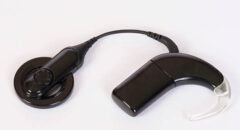
It will probably never cease to amaze society how advanced technology can be. From creating cures for diseases that were probably once deemed incurable, to the way humans experience each other through social media platforms, technology is extremely vast and beyond advanced. It’s even more surprising that there are technologies out today that can actually predict what diseases your body could experience in the future. Yes, you read that correctly. There is a technology out there that can actually predict if something like your heart will end up falling and if you will experience any type of heart disease.
Day 1: Just Diagnosed with Heart Failure
How Is Heart Failure Detected?
Usually, when you go into the doctor’s office stating that you think something is wrong they’ll ask you a bunch of questions starting with “what are your symptoms”.
Once you explain the symptoms and state that you’re experiencing chest pains and all other heart failure symptoms, doctors will ask you about your family history and your medical history. Then they will run a series of tests on you.
These tests are usually blood tests that look to see if there are any signs of diseases that could lead to heart failure, chest x-rays to get an image of how the heart and lungs are looking, cardiac CT scans and more.
If the images and tests show any signs of heart failure, doctors will then proceed to classify how much damage has been done and what stage of heart failure a person may be in.
Then there will be treatment plans, medical prescriptions and a new life plan based on a healthier diet and more exercise if needed.
Who And What Created This New Technology?
So we know how heart failure is detected once in the body, but what’s amazing is how technology can predict your potential of getting heart failure off of a small piece of information in your body.
In October of 2021, it was noted that Mount Sinai researchers Akhil Vaid, MD, and Girish N. Nadkarni, MD had done the unthinkable, they created an








